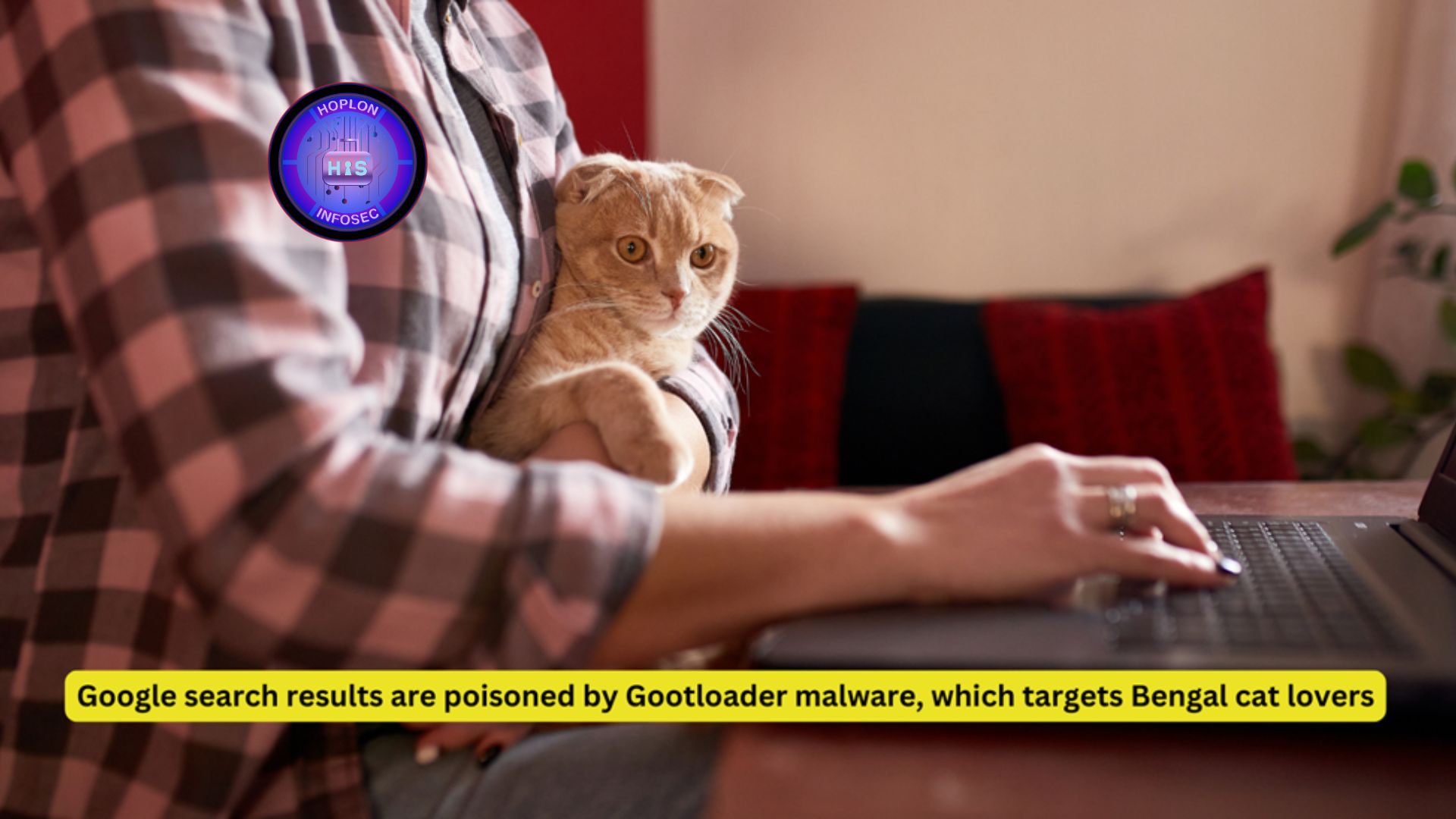In the evolving landscape of cybersecurity threats, search engines have become an unlikely battleground where cybercriminals vie for user attention. Among the latest tactics is SEO poisoning, a method where hackers manipulate search engine algorithms to make malicious websites appear as top results. By exploiting popular keywords, threat actors can drive unsuspecting users to harmful websites, exposing them to various types of malware. One recent and unsettling example is the use of Gootloader malware to target individuals searching for Bengal cats.
SEO poisoning is a technique that leverages search engine optimization (SEO) practices for malicious intent. Instead of optimizing content to attract users genuinely, cybercriminals use trending keywords to push their harmful pages to the top of search results. When users click on these seemingly legitimate links, they are redirected to compromised websites or infected with malware. This manipulation of search results represents a significant threat to internet users and is challenging to detect because it works within the algorithms that search engines rely on.
Gootloader Malware, an advanced malware platform, has been used to execute these SEO poisoning tactics effectively. Known for its association with high-profile malware such as the REVil ransomware and the Gootkit banking trojan, Gootloader operates on a sophisticated, multi-stage platform that allows attackers to deliver malware in stages. This approach provides initial access to infected systems in a stealthy and adaptable way, making it a formidable tool for cybercriminals. By spreading through search engine results, Gootloader reaches users actively searching for specific content, in this case, Bengal cats.
Sophos cybersecurity researchers recently uncovered that Gootloader Malware has specifically targeted Bengal cat enthusiasts. By optimizing malicious web pages for search terms like “Bengal cats” and related keywords, attackers have placed harmful sites within the top Google search results. Bengal cat lovers searching for information or resources about the breed are led to Gootloader-infected websites, where they may unwittingly download malware onto their systems. This targeted approach exemplifies the tailored tactics cybercriminals are now using to ensure higher success rates.
The impact of this SEO poisoning scheme goes beyond individual users. Once infected, users may unknowingly spread malware to other devices or sensitive data within their networks. Moreover, legitimate businesses and websites that rely on the exact keywords may suffer reputational damage as users become suspicious of search results related to Bengal cats. This way, SEO poisoning harms the immediate victims and the broader ecosystem of trustworthy online resources and businesses.
Gootloader Malware’s multi-stage delivery system is particularly concerning. The malware delivers its full payload after a period, making it harder for security software to detect. Instead, Gootloader Malware gradually executes malicious commands, bypassing initial security checks and gaining deeper access to the system over time. By operating in stages, the malware can implement more complex attacks, such as credential theft or system compromise, without raising immediate red flags.
One of the critical risks associated with SEO poisoning is the erosion of trust in search engine results. Users typically assume that the top search results are safe and reliable, making them less cautious when clicking links. SEO poisoning undermines this assumption, creating a dangerous situation where users, even those who are generally careful, may fall victim to well-placed malicious links. This tactic poses a significant challenge for search engines and cybersecurity experts, as it manipulates an integral part of the online user experience.
Cybersecurity experts recommend enhanced vigilance and proactive security measures to combat SEO poisoning and threats like Gootloader Malware. For individuals, this means exercising caution when clicking on search results, especially for niche topics like Bengal cats. It’s also essential to ensure that devices have up-to-date antivirus software and to consider the source of the information being accessed. Meanwhile, search engine platforms must continuously refine their algorithms to detect and block maliciously optimized websites, though this remains a complex and ongoing challenge.
The Gootloader Malware campaign targeting Bengal cat lovers reminds us of how far cybercriminals will go to exploit unsuspecting users. By leveraging popular interests and advanced malware platforms, they’ve managed to infiltrate the search results of major engines like Google. As cyberattack tactics evolve, users and security platforms must remain vigilant to guard against the next wave of SEO poisoning campaigns, which could target even more diverse interests.
Sophisticated Persistence and Evasion Techniques in Gootloader Malware
Gootloader malware employs advanced strategies to maintain persistence and evade detection within infected systems. The primary tactic is SEO poisoning, where attackers manipulate search engine results to make their malicious sites appear in top search positions. When users click these links, they are redirected to compromised websites, setting up the malware’s entry point.
Once inside the target system, PowerShell commands embed a Remote Access Trojan (RAT) that can deploy secondary payloads, such as Cobalt Strike or ransomware. To stay hidden, Gootloader Malware’s authors have adopted sophisticated obfuscation methods. To avoid detection, they create random file names (e.g., with random numerical sequences). They use complex JavaScript with legitimate-looking license comments, making the malicious code look authentic and more challenging to identify.
The malware also stores itself in the AppData\Roaming directory, a location frequently overlooked by antivirus tools. To further mask its activity, Gootloader Malware creates scheduled tasks with names like “Business Aviation” and “Destination Branding,” blending in as ordinary system tasks to avoid arousing suspicion.
How To Stay Safe From Gootloader Malware Attacks?
In today’s digital landscape, even something as routine as a Google search can put users at risk of malware attacks. Recent reports by cybersecurity experts highlight how attackers have started targeting individuals based on niche interests, luring them into traps through manipulated search engine results. This technique, known as SEO poisoning, takes advantage of trending or highly specific keywords to place malicious websites at the top of search results, making them appear credible and enticing to unsuspecting users.
One recent example involves Bengal cat enthusiasts. Cybersecurity researchers from SOPHOS uncovered that attackers had explicitly targeted users searching for “Are Bengal Cats legal in Australia?” By manipulating this exact phrase to lead to compromised websites, threat actors increase their chances of infecting curious users’ devices with malware. While this keyword may seem niche, it highlights a growing trend where attackers leverage popular search topics or unique phrases to conduct targeted attacks.
Knowing how SEO poisoning works is essential to understanding the full extent of this risk. In these cases, attackers optimize malicious websites to appear among the top search results for specific queries. Users who trust these results may unknowingly click on a link that takes them to a harmful website, exposing their systems to malware. This strategy is dangerous because it preys on user trust in search engine results, which most assume to be safe and reliable.
Once users click on a compromised link, they may encounter sophisticated malware designed to exploit their device’s vulnerabilities. For instance, attackers might employ tools like Gootloader Malware, a malware platform capable of embedding additional malicious software, such as Cobalt Strike or ransomware. This allows attackers to maintain long-term access to a user’s device, collecting sensitive data or encrypting files as part of a ransomware demand. The risks associated with these attacks extend far beyond simple data theft.
To protect oneself from SEO poisoning and other forms of malware, experts advise practicing caution when conducting online searches, particularly for niche or less familiar topics. For instance, if you’re researching Bengal cats or any other unique subject, exercise caution when clicking on unfamiliar sites or links that seem too perfect or “optimized.” Often, the most convincing sites can be those designed to deceive. Verifying the source’s legitimacy before clicking is a simple but powerful preventative step.
Another critical defense against malware attacks is maintaining up-to-date antivirus software on all devices. Reliable antivirus programs can detect and block threats before they reach your system. This protective layer helps identify and neutralize potential threats that may slip past your initial caution when navigating search results. Regular software updates ensure your security tools can handle even the latest threats.
It’s also essential to recognize suspicious behavior on websites. For instance, if a site redirects you multiple times or presents pop-ups urging you to download files, it’s best to exit immediately. Legitimate websites generally rely on something other than aggressive tactics to push downloads or redirect users to secondary pages. This awareness, combined with cautious browsing, helps prevent malware from gaining a foothold on your system.
When a user accidentally lands on a compromised site, cybersecurity experts suggest not clicking on any further links or downloading files. Simply closing the tab or browser can prevent additional exposure. Regularly clearing your browsing history and cache reduces the chances of inadvertently revisiting risky sites. These small actions can limit the opportunities malware has to interact with your device, reducing the risk of infection.
Ultimately, the rise of SEO poisoning and targeted attacks emphasizes the importance of digital vigilance. By being mindful of the links you click, maintaining robust antivirus protection, and recognizing the warning signs of a compromised website, you can effectively guard against malware. While attackers may continue to refine their tactics, a combination of awareness and proactive security practices is the best defense against falling victim to these increasingly sophisticated threats.
For more:
https://cybersecuritynews.com/gootloader-targets-bengal-cat-lovers/




